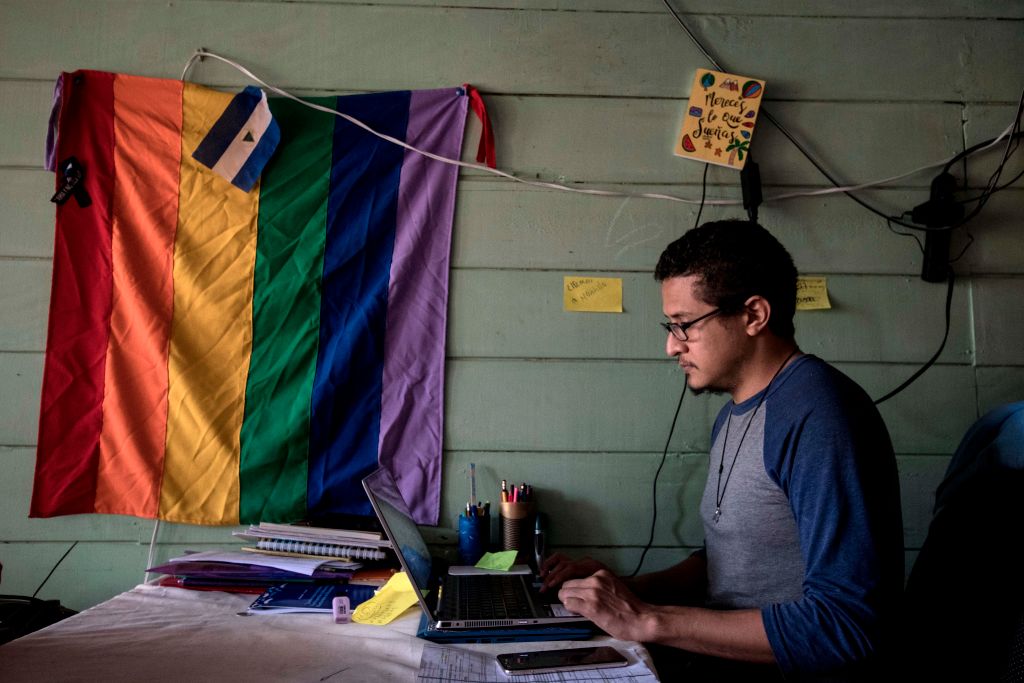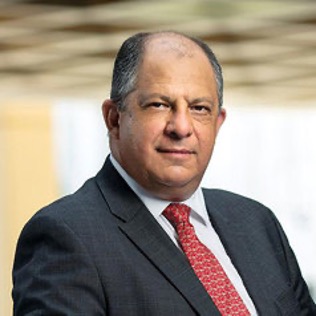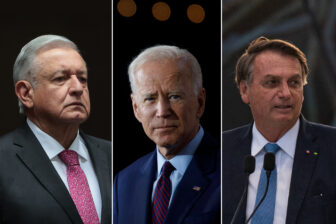It may be a new year, but unfortunately, pessimism remains the general rule in Central America. With dictatorship in Nicaragua, an increasingly authoritarian regime in El Salvador and highly dysfunctional political systems unable to resist organized crime in Guatemala and Honduras, the Central American region endures its darkest hours since the signing of the Esquipulas Peace Accords in 1987.
One of the most violent regions in the hemisphere, the Central American nations – with the possible exceptions of Costa Rica and Panama – have not been able to establish solid public institutions capable of withstanding the demands of increasingly impatient and angry societies. After decades of poverty, war, weak economies and poor provision of basic public services, the people of Central America have been overwhelmed by one of the most pervasive, and insulting, phenomena of our times: massive corruption. All the while, political elites claim to rule democratically and uphold the rule of law.
Still, despite the grim setting, there are indications that the current moment could lead to a better situation for Central American democracy, on at least three different fronts – from more active participation by women and young people, to better international cooperation.
Central America’s courageous youth
A new generation of Central Americans is participating in politics with what seems to be a different logic. In Honduras, younger voters were decisive in the election of Xiomara Castro in November 2021, the first female president in the country’s history. They did so by putting an end to an often militarized and increasingly corrupt political system that ruled Honduras for over 100 years.
In Nicaragua, brutal repression prevented young people, mostly university students and unemployed urban youth, from bringing down the Ortega–Murillo dictatorship. But is there any doubt that they were the ones at the forefront of the March 2018 rebellion that the tyranny quenched in a sea of blood?
In Guatemala, only young people have been willing to draw back the veil of silence that has for many years shrouded the atrocities of a still colonial reality in the nation’s countryside. In Costa Rica, young LGBTQ activists carry on a tense but important discussion regarding human rights and how to build a more inclusive society.

Though the process may not necessarily be easy, perhaps the increasing eminence of this new generation will mean power will be handled in a more democratic spirit. After all, the region’s young people are the only ones apparently willing to break away from old republican preconceptions that have proven incapable of adapting to the fast pace of contemporary demands – such as bipartisanship, the neutrality of the media, patriarchal social order and, more recently, the absolute truth of trickle-down economics.
Women make strides
Another hopeful sign, though still in flux, is growing awareness of the key role that women leaders will play in the future of Central America. The fight for legal and political rights and economic empowerment for women remains one of the region’s most challenging pending obligations.
Although there seems to be growing cultural resistance in the region to women participating in activities outside the confines of the home, over the long term it is impossible to prevent more women from being represented in decision-making positions in the private and public sector alike.
Women represent more than 50% of the population of Central America, so besides being the right thing to do, including them in business and public life is essential to the consolidation of truly democratic systems in Central America.
The promise of international cooperation
Three recent developments on the international front also represent reasons to be optimistic. First is the decision of the presidents of Costa Rica, Panama and the Dominican Republic to form the Alliance for Development in Democracy. Created in the context of the 2021 UN General Assembly in New York, this new space for political dialogue is an initiative to integrate the three governments in a “Southern Triangle” of sorts (paralleling the “Northern Triangle” of Guatemala, Honduras and El Salvador). It will be based on a common understanding of democratic rule and economic prosperity.
Coming together at a time when the rest of the region is undergoing a dire turn towards autocracy, these countries are sending a strong signal of their determination to withstand the pitfalls that the rest of “undemocratic” Central America represents. It hopes to avoid the fate of Central America’s regional organization (SICA), which is currently paralyzed by the lack of agreement and consensus amongst its members. The creation of the Alliance could give a much-needed boost to democratic development in Central America, even raising the possibility of fresh international attention to this critical region of the Americas. This, at least, is what President Joe Biden expressed during the “Summit of Democracy” in December 2021.
Secondly, the United States seems to be fine-tuning its regional strategy. The Biden administration’s plan to provide up to $4 billion in aid to reduce poverty, deprivation, unemployment and public insecurity in the Northern Triangle countries remains a positive and welcome initiative. If strictly monitored and forcefully implemented, the Biden plan can still be pivotal for the recuperation of certain minimal conditions indispensable for democratic build-up – among which transparency, respect for human rights and the rule of law are central. Ensuring a positive outcome from U.S. cooperation with Honduras under a new administration will be of utmost importance to this end.
Finally, Vice President Kamala Harris has detailed ongoing efforts to promote private investments in the region. So far, several well-known venues have pledged up to $1.2 billion in fresh investments in the Northern Triangle over the next few years. A key component of this process will be “nearshoring,” the relocation of supply chains closer to the U.S. mainland. This could be a promising new opportunity to move U.S. support away from humanitarian aid towards a more sustainable effort than can support itself in the long term, regardless of future political whims.
With China and Russia roaming around Central America, however, support must come accompanied by geopolitical clarity. If Washington wants the competition out, then stronger, more committed leadership – diplomatic, political, military and especially economic – will be needed soon. This must include positive understandings on complicated and politically sensitive issues which are currently clouding the relationship – such as migration, combating transnational organized crime and the enforcement of environmental issues, among others.
Democracy is being harassed everywhere and Central America is suffering, too. Yet in this small corner of the Western hemisphere, the consequences of democratic breakdown could be especially dire for the United States and its neighbors. Hence the need to carefully assess the current situation and move proactively to turn it around. It won’t be easy, but the alternative is simply unacceptable. Fortunately, as the Honduran electoral results in 2021 attest, there is hope when good leadership and correct reading of the context coincide. Let’s hope that this will be the case in the years to come.
—
Solís is the interim director at the Kimberly Green Latin American and Caribbean Center at Florida International University and the former President of Costa Rica.









